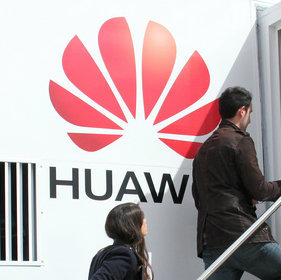The Chinese equipment vendor is deemed a security threat by some Australian politicians.

Chinese equipment vendor Huawei could find itself excluded from Australia's 5G market after local politicians raised security concerns about the company and described it as an extension of the Chinese state.
Michael Danby, a member of the opposition Labor party, last week urged the Australian government to block Huawei Technologies Co. Ltd. and smaller Chinese player ZTE Corp. (Shenzhen: 000063; Hong Kong: 0763) from providing equipment for use in Australia's 5G networks, according to mainstream press reports.
Danby is quoted by the UK's Financial Times newspaper (subscription required) as saying that Huawei and ZTE "must report to the Communist party cell at the top of their organizations."
Australia has already shut Huawei out of its National Broadband Network and recently took steps to prevent the Chinese vendor from building a subsea cable to the Solomon Islands. (See Australia Dumps Huawei From Pacific Cable Project.)
Australian Prime Minister Malcolm Turnbull reportedly met with US government officials in February to discuss the security implications of using Huawei technology.
Both Huawei and ZTE have been locked out of business opportunities with Tier 1 US operators since 2012, when a US government report described the Chinese companies as a threat to national security.
Conditions for them have worsened under the administration of President Donald Trump. Lawmakers have been seeking an official ban on their sale of equipment in the US market, while ZTE has been unable to buy US components after it was recently accused of violating sanctions against Iran and North Korea.
Trump last week said he would lift the ban, which had threatened ZTE's very survival, if it agreed to pay a $1.3 billion fine and change its management. (See Trump Says ZTE Can Re-Open... With Conditions and ZTE Ceases Business Operations After US Ban.)
While less dependent than ZTE on US-made components, Huawei is said to be under investigation by the US Department of Justice for a similar violation of sanctions against Iran. (See US Ban on Huawei Would Trigger Turmoil in Telecom Industry.)
Industry commentators say the Chinese vendors have been caught in the crossfire of a trade dispute between the US and China, with the US government threatening to impose tariffs on billions of dollars' worth of Chinese imports. (See Trump Admin Reboots $50B China Tech Tariffs.)
Concern persists that China has been stealing intellectual property and could take a lead over the US on the development of technologies such as 5G and artificial intelligence.
By convincing other governments to block Huawei and ZTE, US government figures could undermine the Chinese vendors in markets where they are still able to sell equipment.
Want to know more about 5G? Check out our dedicated 5G content channel here on
Light Reading.
Huawei is said to have lashed out at the criticism from Australian politicians, arguing that any ban would not only hurt its local business but also deal a blow to competition.
John Lord, the chairman of Huawei's Australia unit, is reported to have said that Huawei already accounts for about 55% of Australia's 4G market. He also denied links between Huawei and the Chinese government and insisted the company poses no security threat.
Australia's government is said to be considering the introduction of laws that would make it harder for Huawei and ZTE to do business locally.
But even the threat of a ban could persuade Huawei's customers to shift to other network vendors.
On the international stage, the current situation is especially troubling for operators that have pursued a "single-vendor strategy," says Bengt Nordström, the CEO of the Northstream consulting group and a former C-level executive in the telco industry.
"This is an alarm bell," said Nordström in a conversation with Light Reading about the recent US action against ZTE and Huawei. "You need a second vendor that can ramp up business if something goes wrong."
Several operators have expressed concern about the implications of the US moves against Chinese equipment suppliers. Ibrahim Gedeon, the CTO of Canada's Telus, said the trade war between the US and China made him "apprenhensive" about dealing with Huawei, while Sigve Brekke, the CEO of Norway's Telenor, recently told analysts he was "monitoring" developments regarding ZTE, which Telenor uses in several countries. In addition, pan-African operator MTN noted in its recent earnings report that it was assessing the impact of the US lawmakers "given our exposure to ZTE in our networks." (See ZTE Racks Up Losses of $3B After US Ban – Report and Nigeria, Ghana Fuel MTN's Q1 Growth Ahead of IPOs.)
— Iain Morris, International Editor, Light Reading
Read more about:
AsiaAbout the Author(s)
You May Also Like











